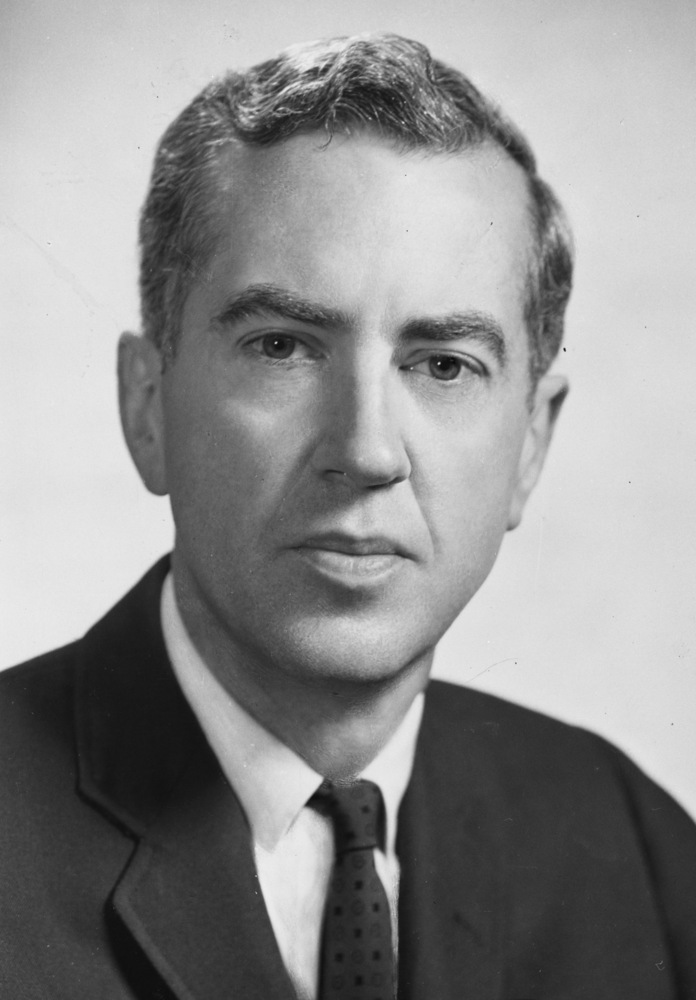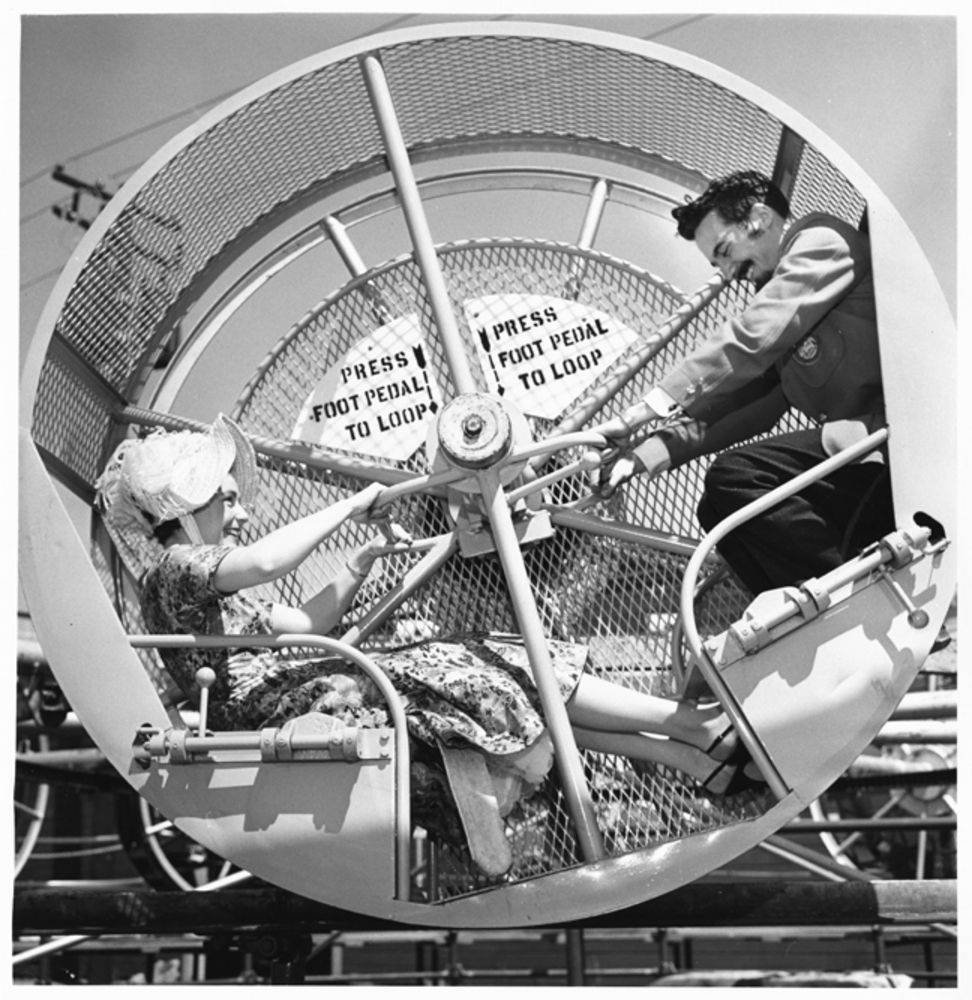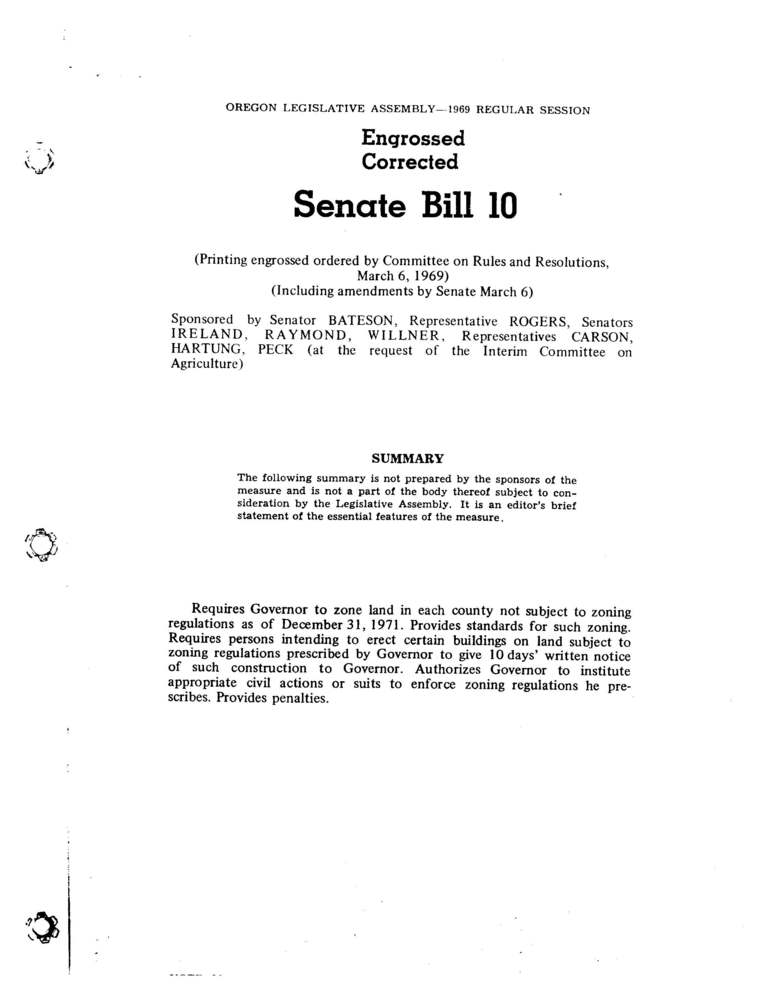Ted Hallock, by any measure, was a man of astonishing talent and scope, achieving prominence as a hero of World War II, a state senator and debater, a musician and jazz band leader, an award-winning radio personality, a successful public relations executive, and a political leader who was instrumental in bringing land-use planning to Oregon. He was a fierce advocate, with a withering sarcasm for those who opposed his causes, many of which were visionary.
Born in Los Angeles, CA on October 25, 1921, Hallock's family moved to Portland when he was six years old. He attended Grant High School and entered the University of Oregon as a pre-law student in 1940. Sixteen months later, the Japanese bombed Pearl Harbor and Hallock enlisted in the Army Air Corps, after gulping down fifteen bananas and three quarts of milk to pass the Corps' minimum physical requirements.
Hallock graduated from bombardier school, married his college sweetheart, and then shipped out to England just as the Air Corps was beginning its massive daylight bombing raids over Germany. After thirty-one missions, he was rotated back to the states, heavily decorated with medals and service ribbons, among them a Purple Heart. Now two strangers, he and his wife divorced soon afterward.
During a brief home leave in 1944, Hallock met some of the editors of the New Yorker at a party. They were fascinated with the brash, young lieutenant and assigned their top writer, Brendan Gill, to profile him. "Young Man Behind Plexiglas," published in August 12, 1944, reveals a young man eager to start his life after months of daily terror.
Discharged, Hallock returned to the University of Oregon and changed his major to journalism. He organized an eighteen-piece band, with himself on the drums, wrote reviews for Downbeat magazine, was associate editor of the Emerald, and was program director for KUGN radio. He married a fellow student, Phyllis Natwick; they had two children. They would divorce in 1968.
A few hours shy of a degree, Hallock left the university to accept a short-lived position with Downbeat. Back in Portland, he worked for several radio stations, winning a clutch of national awards, including a Peabody Award for local programming. In 1957, he was appointed state coordinator of the Oregon Centennial Commission and traveled the state for eighteen months organizing local activities. He opened his own public relations firm in 1959, and in 1962 he was elected to the legislature.
Hallock's oratory on the Senate floor drew crowds and changed votes, and he was a devastating opponent in debate. He introduced bills on fluoridation, abortion, and banning nuclear power plants, earning him a reputation as a "windmill tilter." His success with SB 100 in 1973, Oregon’s statewide land-use planning bill, seems all the more remarkable in that light.
Hallock was happily remarried at the time he left the legislature in 1982, and settled down to a low-key, private life. He died on December 16, 2006. A memorial jazz party was attended by three Oregon governors.
-
![Ted Hallock.]()
Hallock, Ted, bb005780.
Ted Hallock. Oreg. Hist. Soc. Research Lib., bb005780
Related Entries
-
![Centennial Exposition of 1959]()
Centennial Exposition of 1959
Oregon became the thirty-third state on February 14, 1859. A century la…
-
Land Use Planning
In 1973, Oregon took a pioneering step in land use planning. Signed int…
-
![Senate Bill 100]()
Senate Bill 100
Signed into law on May 29, 1973, Oregon Senate Bill 100 created an inst…
Map This on the Oregon History WayFinder
The Oregon History Wayfinder is an interactive map that identifies significant places, people, and events in Oregon history.
Further Reading
Neal, Steve, with Tom McCall. Tom McCall: Maverick. Portland: Binford & Mort, 1977.
Walth, Brent. Fire at Eden's Gate. Portland: Oregon Historical Society Press, 1994.




